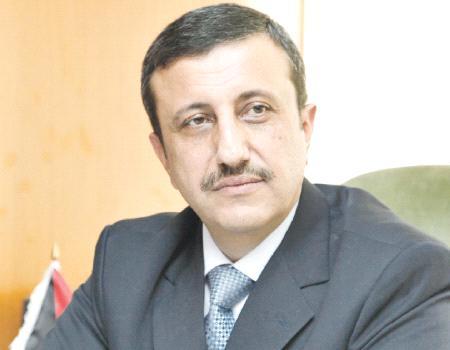You are here
Economists say time to move from diagnosis to treatment
By Omar Obeidat - Mar 29,2014 - Last updated at Mar 29,2014
AMMAN – Economists and sector leaders on Saturday welcomed His Majesty King Abdullah’s instructions to the government to draw up a 10-year strategy to stimulate the Kingdom’s economy.
In a letter sent to Prime Minister Abdullah Ensour, the King stressed the need to improve Jordanians living conditions and secure jobs that provide them and their families with a decent living and hope for a better future.
Calling on the government to provide socio-economic solutions and programmes to alleviate the financial burdens of citizens, he said that the economic blueprint should have a comprehensive framework to enhance financial and monetary policies, improve economic competitiveness, enhance values of high productivity and self-reliance to realise sustainable and comprehensive development.
Jawad Anani, former Royal Court chief and a several-time minister, said he was “overjoyed” with the news about the King’s letter, saying the economy is in dire need of a long-term plan to exit the challenges it has been facing for the past years.
“This is the best news I have heard in a while,” Anani told The Jordan Times over the phone, adding it is important to know where the economy will be standing in 10 years.
“It is important that we stop saying Jordan is a poor country with a wide budget and trade deficit. What we need is to find solutions for our economic woes,” he said, adding it is unacceptable that unemployment among young men is around 25 per cent and nearly 48 per cent among females.
“It is unacceptable that the education system graduates young people who cannot find jobs,” Anani said, adding that the performance of the public administration is also on a decline.
The plan should address all these challenges in addition to finding a permanent solution to Jordan’s biggest problem, which is energy insufficiency, he said, highlighting other priorities such as better management of the Kingdom’s human, fiscal and natural resources.
Economist Zayyan Zawaneh said in the Royal Letter of Designation to the current government in late 2012, the King stressed the need to address economic challenges and to work on improving peoples’ living standards.
“Unfortunately the government has not paid the attention the economy really needs,” Zawaneh said, adding that Saturday’s instructions aim at reminding the government of the need to draw up genuine remedies for Jordan’s economic challenges through a long-term plan.
Indicating that the incomes of households are being eaten by rising living costs, the analyst stressed the importance of improving the performance of key sectors such as the energy, public transportation and investment.
Former industry and trade minister Mohammad Halaiqah said that Jordan has made important strides in political reforms and it is time to pay more attention to the economy, particularly in light of regional and global uncertainties.
Part of Jordan’s economic woes are beyond its control such as energy, the Syrian refugees influx and declining capital inflows, he said, adding that the government and the private sector and all stakeholders can work together to overcome the challenges.
Halaiqah called on the government to speed up its alternative energy projects and to increase its efforts in attracting investments and tourists.
Maen Nsour, former chief of Jordan Investment Board and the Social Security Corporation, said the King’s instructions to the government is also a letter to future decision makers to devise long-term policies for the economy.
Jordan needs decent planning that can be reflected on citizens’ living conditions, he said, adding that there should be stability in economic legislation.
“I hope the government gets the message and starts on putting plans in place while taking into account local and regional developments,” he added.
Economist Maher Mahrouq said policy planners will not start from scratch in drafting the long-term plan as they can take advantage of previously drawn up strategies such as the National Agenda, Governorates Development Strategy and National Employment Strategy.
Highlighting the importance of long-term planning, Mahrouq said the government was unable to properly facilitate the $5 billion grant from Gulf countries due to lack of medium- to long-term plans.
He said that long-term planning has helped countries like Malaysia and Turkey achieve sustainable economic development.
Musa Saket, board member of the Jordan Chamber of Industry, said energy and employment issues should top the priorities of any economic policy, stressing that need to implement the plan once drafted.
President of the Jordan Housing Developers Association Kamal Awamleh described the letter of the King as a strong message to decision makers to start paying more attention to the challenges facing both people and the business environment in the country.
He said the strategy the government is expected to draw after the directions of the King should include a plan for the housing issue, which has become a pressing concern for the majority of Jordanians who cannot afford to buy decent residential units.
Related Articles
A group of economists has agreed to form a team to draft a development strategy for Jordan’s economy for 2014-2022.
The private sector wants to be involved in the Kingdom’s long-term economic development plan the government is working on in response to directives by His Majesty King Abdullah.
The Economic Policy Development Forum (EPDF), a leading think tank, on Sunday welcomed the directives of His Majesty King Abdullah to the government to draw up a 10-year blueprint for economic development.

















